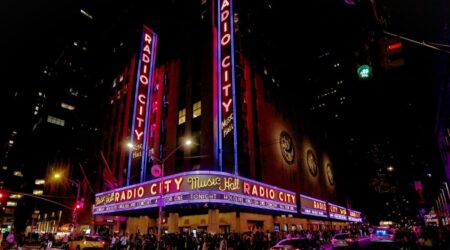
When I saw that Fantastic Fest 2019 was using promotional material covered in sugar skulls, calaveras, I was worried. I love the iconography but more often than not they are used to commodity Mexican culture and not to celebrate it, especially in a city like Austin. But from the moment the schedule for the films was announced I knew that this was more than just cool designs for an iconic genre festival.
By partnering with the Mexican consulate, Fantastic Fest 2019 aimed to celebrate Mexican culture, identity, and more importantly film. By curating Mexican horror classics the festival has created a space that celebrates the voices of creators not only important to the landscape of horror but given the large Mexican American population in Texas, it felt like it celebrated us. And as a Tejana myself who often notices how lacking our representation in front and behind the camera at film festivals I felt seen.
I didn’t feel seen in a kitchy way, the way I feel walking down South Congress in Austin as shops owned by non-Latinx sell variations on Chicano and Mexican art at astronomical prices to tourists. I felt seen in the way I do when I’m back home in San Antonio walking into the Guadalupe Cultural Arts center or walking my old neighborhood with the sides of the projects covered in murals of Aztecs and eagles and saints. It was a weird feeling as Jojo Rabbit opened the festival and we were greeted by an all-female mariachi band and informed that Fantastic Fest 2019 was developed with the help of the Mexican Consulate. It was weird, but like many of the films at this genre festival, weird is good.
When you go so long in a space where people like you are barely visible, you start to question yourself, even when you’re succeeding. But when I entered the Alamo Drafthouse South Lamar I was entering a space that was celebrating pieces of my culture. I felt like my identity meant something seeing the Lucha masks that reminded me of watching El Santo movies with my welo (grandpa) as a kid to the papel picado hanging from the ceiling and even the special menu for the festival that was Tex Mex themed. My community was more than just the woman playing a maid who doesn’t speak or the cholo and his gang.
Now it isn’t perfect – I’m looking at you “barbacoa” torta on the menu that is really just brisket, specifically in how some festival-goers have talked about the iconography but, those people are everywhere. But as an event, Fantastic Fest 2019 is wonderful, even if in a room of Mexican-themed decor, I’m one of the few brown faces – but I’m used to that.

The most exciting thing is that Fantastic Fest 2019 is doing more than just using our food and imagery, they’re also celebrating Mexico’s long history in genre film through Abraham Castillo Flores, head programmer of Mexico’s famed Morbido Fest, multimedia tour of genre cinema from the country. Presented by The Morbido Crypt and The Miskatonic Institute of Horror Studies, the Guide to Mexican Fantasy and Horror Cinema will take place Sunday, September 22 at 2 pm and will be celebrating the decades of Mexican fantasy and horror cinema that has been relegated to the sidelines.
In addition, Austin’s Consulate of Mexico is bringing México Fántastico a program that opens with the thriller Sin Nombre. Next in the program is a selection of fantastic shorts that will showcase the diversity of genre and style of Mexican film, including the eerie folk-horror of The Wandering Witch and the disturbing sci-fi drama of The Original.
While we still have more nights of Fantastic Fest 2019 to go and seeing a celebration of Mexican film is heartening. That said, even though Mexicans are the largest heritage for the Latinx population in the United States, there is a large world of Latinx experience that lay outside the Mexican or Mexican American experience and is largely overlooked by pop culture.
To bring home the importance of showcasing Mexican cinema at a festival so prominently, a recent study from USC’s Annenberg Inclusion Initiative study, Currently Latinx make up only 3% of leads or co-leads of the 100 top-grossing films from 2007 to 2018. Add in the fact that only 4.5% of speaking characters in those movies were Latino. Want to know something more depressing, 47% of the 1,200 movies sampled had no speaking Latinx characters at all, and around 70% lacked any Latina characters. The stats showcase the extreme lack of Latinx representation especially in comparison to the overall demographics of the country in which Latinx are the largest ethnic minority at 59.9 million people in the United States.
Fantastic Fest 2019’s spotlight on Mexican talent may not be a fix, but for this Mexican American critic, it’s a start.






